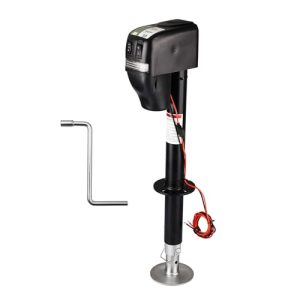Imagine stepping into a world where flying cars zip through the sky, trains glide at supersonic speeds, and taxis are driven by intelligent robots. Sounds like science fiction, right?
But these innovations might be closer than you think. As technology races forward, transportation and travel are poised for some exciting transformations. Are you ready to explore what the future holds for how you move from place to place? This isn’t just about convenience; it’s about changing the very fabric of your daily life.
Whether you’re a frequent traveler or someone who loves to explore new places, understanding these changes will not only pique your curiosity but empower you to embrace them confidently. So, buckle up and dive into the possibilities that are set to redefine your journeys.
Smart Vehicles
Smart vehicles are changing the way we travel and commute. They are equipped with advanced technologies that enhance safety and efficiency. These technologies are paving the way for a future where driving becomes more comfortable and convenient.
Autonomous Cars
Autonomous cars drive themselves with little or no human input. Sensors and software guide these vehicles through traffic. They can detect obstacles and make quick decisions. This reduces the chance of accidents. Autonomous cars offer a glimpse into a future of hands-free travel.
With autonomous technology, people can focus on other tasks. Commuting becomes productive and stress-free. This technology promises safer roads and smoother traffic flow.
Connected Car Technologies
Connected car technologies allow vehicles to communicate with each other. They share information like road conditions and traffic updates. This helps drivers avoid congested areas. It also enhances the safety of passengers.
Cars equipped with connected technology can interact with infrastructure. This includes traffic lights and road signs. This creates a seamless driving experience. The future of travel looks promising with these smart vehicles.
Electric Mobility
Electric mobility is transforming how we travel and commute. It offers a cleaner, more sustainable mode of transportation. Electric vehicles (EVs) are becoming a significant part of this shift. They promise reduced emissions and quieter operation. As technology advances, electric mobility will likely reshape our roads and cities.
Rise Of Electric Cars
Electric cars are gaining popularity worldwide. They offer an eco-friendly alternative to traditional vehicles. Many manufacturers are now producing various electric car models. These cars have improved battery life and better performance. More people are considering electric cars for their next purchase. Government incentives also encourage this shift towards electric vehicles.
Expansion Of Charging Infrastructure
Charging infrastructure is expanding rapidly to support electric cars. More charging stations are appearing in cities and along highways. This growth ensures that electric car owners can travel long distances. Businesses and governments are investing in charging networks. Accessible charging points make electric vehicles more practical. As infrastructure grows, electric mobility becomes easier for everyone.
Urban Air Mobility
Urban Air Mobility will transform how we travel in the future. Flying vehicles will ease city congestion. Quicker commutes and reduced pollution will enhance urban life.
Urban Air Mobility is set to redefine how we move within cities. Picture a world where the sky above us is bustling with flying taxis and drones, all working seamlessly to make travel and delivery faster and more efficient. This isn’t science fiction—it’s the future of urban transportation.Flying Taxis
Flying taxis are no longer just a futuristic concept. Companies are already testing these aerial vehicles in several cities worldwide. Imagine booking a flying taxi through an app, much like you do with a ride-share service today, and soaring over traffic to reach your destination in minutes. These taxis promise to cut down on commuting time significantly. They will also reduce congestion on the roads below, offering a cleaner, quieter alternative. Are you ready to swap your car ride for a flight above the city?Drone Deliveries
Drone deliveries are gradually becoming a reality in urban areas. Picture receiving your package not by a delivery van but via a drone landing on your doorstep. This method is not only faster but also environmentally friendly, reducing the need for traditional delivery vehicles. Businesses are investing heavily in drone technology to make this happen. Soon, you may find yourself tracking your parcel as it flies directly to your home. How will this change your shopping habits? Urban Air Mobility offers a glimpse into a sky-bound future. With flying taxis and drones becoming integral parts of city life, the way we think about travel and transport is set to change dramatically. Are you prepared for this new era of urban mobility?Shared Mobility Solutions
Transportation and travel will evolve with shared mobility solutions offering efficient, cost-effective alternatives. These services provide access to bikes, scooters, and cars without ownership, reducing congestion and pollution. Future travel looks more sustainable and convenient, meeting diverse needs with flexible options.
Imagine a world where owning a car is no longer a necessity but a choice. Shared mobility solutions are transforming the way we think about transportation. With cities becoming more crowded and resources more precious, these solutions offer a sustainable, cost-effective alternative to traditional travel.Car-sharing Services
Car-sharing services are gaining popularity, offering you the convenience of a car without the burdens of ownership. Companies like Zipcar and Turo allow you to rent vehicles by the hour or day, providing flexibility for your schedule. This model can reduce the number of cars on the road, cutting down on traffic and pollution. Have you ever needed a car just for a day or two? Car-sharing services can save you the hassle and expense of long-term ownership. They are perfect for occasional drivers who value convenience and affordability over permanent ownership.Bike And Scooter Sharing
Bike and scooter sharing has taken urban areas by storm, offering a quick and eco-friendly way to navigate city streets. Services like Lime and Bird provide easy access to bikes and scooters through mobile apps. You can pick up a scooter on one corner and drop it off on another, making short trips faster and more enjoyable. Think about the last time you were stuck in traffic or looking for parking. Bike and scooter sharing can bypass these hassles, offering a direct, scenic route to your destination. They are not only efficient but also promote a healthier lifestyle by encouraging physical activity. These shared mobility solutions are not just trends; they are reshaping the future of travel. How will these changes impact the way you move around your city? Will you embrace the convenience and sustainability they offer, or stick to traditional methods? The choice is yours, but the future of transportation is already here.High-speed Rail Innovations
The future of transportation is teeming with exciting possibilities, and high-speed rail innovations are at the forefront of this evolution. Imagine zipping across continents at speeds so fast, your journey becomes a blur of stunning landscapes and cities in motion. As we anticipate these advancements, it’s worth diving into specific technologies that promise to transform our travel experiences.
Maglev Trains
Maglev trains, short for magnetic levitation, are the epitome of futuristic travel. Picture gliding smoothly over tracks without the noise or friction typical of traditional trains. This technology uses magnets to lift and propel the train, resulting in quieter and more efficient journeys.
Countries like Japan and China are already pioneers in maglev train development, with speeds reaching up to 375 mph. Imagine arriving at your destination in record time, and with energy efficiency that reduces the carbon footprint of travel.
Would you choose a train for your next trip if it promised a quicker, quieter journey?
Hyperloop Developments
Hyperloop is another groundbreaking innovation that promises to change how we travel. Think of traveling in a pod through a vacuum tube at speeds comparable to flying. This concept aims to offer high-speed travel with minimal energy use.
Projects are underway in various parts of the world, with companies like Virgin Hyperloop leading the charge. These developments promise to shrink travel time between cities dramatically. Imagine commuting from Los Angeles to San Francisco in less than an hour.
How might your travel habits change if hyperloop becomes a reality?
As you ponder these innovations, consider the implications for your future travel plans. Will these technologies redefine your experience of distance and time? High-speed rail promises not only speed but a more sustainable and efficient way to explore the world. What destinations would you visit with these advancements at your fingertips?
Sustainable Travel Practices
Sustainable travel practices are changing the world of transportation. People want eco-friendly ways to travel. This shift helps protect our planet. It also leads to new methods of transportation. These methods focus on reducing emissions and conserving resources. As people become aware of their impact, they choose greener options. This movement is shaping the future of travel.
Eco-friendly Transportation
Electric vehicles are gaining popularity. They produce fewer emissions than traditional cars. Bikes and scooters are also great for short trips. Public transport systems are going electric too. Trains and buses are becoming cleaner. This change makes them more sustainable. Solar-powered vehicles are another exciting development. They use the sun’s energy to move. These solutions reduce pollution significantly.
Carbon Offset Initiatives
Travelers can now offset their carbon footprint. Many airlines offer carbon offset programs. Passengers can pay a small fee. This fee supports projects that reduce emissions. Projects like tree planting are popular. They absorb carbon dioxide from the air. Companies also invest in renewable energy. Wind and solar power are the top choices. These initiatives make travel more sustainable.
Virtual And Augmented Reality In Travel
The future of transportation and travel is poised for a dramatic transformation with the integration of virtual and augmented reality (VR and AR). Imagine exploring the world without leaving your home or enhancing your travel experiences with digital overlays that guide and inform. These technologies are not just novelties; they’re reshaping how we interact with the world. The potential is staggering, offering both convenience and a new depth to our journeys. How will these advancements change your future travels?
Virtual Travel Experiences
Picture yourself sipping coffee in Paris or hiking through the Amazon rainforest—all from your living room. Virtual travel experiences are bringing the world to your doorstep. These immersive experiences can provide a taste of different cultures, sights, and sounds without the need for a plane ticket.
Platforms are rapidly improving, offering more realistic and interactive environments. You could virtually visit a destination to plan an actual trip, minimizing surprises and maximizing enjoyment. Have you ever considered exploring a place virtually before committing to your next travel destination?
Ar In Navigation And Exploration
Augmented reality is revolutionizing navigation and exploration. Imagine pointing your smartphone at a monument and instantly receiving historical facts or directions. AR can make navigating foreign cities as easy as strolling through your neighborhood.
Travel apps are integrating AR features to guide users through complex transit systems or tourist sites. They can overlay directions onto live street views, reducing confusion and enhancing safety. How might AR change the way you explore unfamiliar places?
AR can also offer personalized experiences by suggesting hidden gems based on your interests. Ever wished for a travel guide that knew exactly what you’d love? This could soon be your reality.
Virtual and augmented reality are not just technological fads; they are becoming essential tools in travel. As these technologies evolve, they promise to enrich your travel experiences, making them more accessible and engaging. What possibilities excite you the most about this digital travel revolution?
Impact Of Artificial Intelligence
Artificial Intelligence (AI) is transforming transportation and travel. It enhances efficiency, safety, and convenience. This technology impacts all aspects, from traffic management to travel planning. AI’s influence will be significant in shaping future transport systems. Let’s explore its role in traffic management and travel assistance.
Ai In Traffic Management
AI helps manage city traffic smartly. It uses data from various sources. Cameras, sensors, and GPS devices provide real-time information. AI analyzes this data swiftly. It predicts traffic patterns and optimizes traffic signals. This reduces congestion and improves flow. Cities become more efficient and safer.
AI can also predict accidents. It identifies risk factors in real-time. This helps authorities respond quickly. Emergency services reach accident sites faster. AI makes roads safer for everyone.
Ai-powered Travel Assistance
AI enhances travel planning and assistance. It offers personalized recommendations. Travel apps use AI to suggest routes and activities. Travelers get information tailored to their preferences. This makes travel planning easy and enjoyable.
AI also provides language translation. Travelers communicate better in foreign places. AI-powered chatbots assist with bookings and queries. They offer support 24/7. Travelers find help anytime, anywhere.
With AI, travel becomes more comfortable and stress-free. Future journeys will be smarter and more efficient.
Blockchain In Travel
Blockchain technology is making waves in various industries. The travel sector is no exception. This technology promises to transform how we travel. Blockchain offers transparency and security. It also brings efficiency to travel processes. Imagine a world where your travel documents are secure and transactions safe. Blockchain is paving the way for such a future.
Secure Transactions
Blockchain ensures transactions are secure and transparent. No need for third-party involvement. This means fewer chances of fraud. Each transaction is recorded on a decentralized ledger. This makes it tamper-proof. Travelers can trust that their payments are safe. Whether booking flights or hotel rooms, security is a priority.
Decentralized Travel Platforms
Decentralized platforms are gaining popularity. These platforms use blockchain to connect travelers directly with service providers. No middlemen involved. This can lead to cost savings for travelers. It also ensures a more personalized experience. Travelers can access a wide range of services. All in one place. Blockchain makes this possible.
Regulatory And Policy Shifts
Regulatory and policy shifts play a crucial role in shaping the future of transportation and travel. As technology evolves, laws and regulations must adapt to ensure safety, sustainability, and efficiency. Understanding these changes is vital for businesses, travelers, and policymakers.
Changes In Transportation Laws
Transportation laws are constantly evolving to meet new challenges. Governments worldwide are focusing on sustainability and reducing emissions. Electric vehicles are gaining popularity, prompting changes in infrastructure and regulations. Autonomous vehicles are also on the rise, requiring new safety standards.
Public transportation systems are being modernized to improve efficiency and accessibility. Cities are investing in smart technology to manage traffic flows. Bicycle and pedestrian-friendly laws are being implemented to promote healthy and environmentally-friendly commuting.
International Travel Regulations
International travel regulations are becoming more complex. Security measures are stricter to ensure passenger safety. Visa requirements are changing to enhance global mobility. Countries are collaborating to ease travel restrictions and streamline processes.
Health protocols are gaining importance in light of recent global events. Travelers must comply with vaccination and testing requirements. Digital passports and contactless travel solutions are emerging to simplify border crossings.
Environmental considerations are influencing international travel policies. Airlines are adopting greener practices, and governments are supporting sustainable aviation initiatives.
Frequently Asked Questions
What Are The Future Trends In Transportation?
Future transportation trends include autonomous vehicles, electric cars, and hyperloop systems. These advancements aim to increase efficiency and reduce emissions. Urban air mobility, like flying taxis, may also become commonplace. Technologies such as AI and IoT will enhance traffic management and safety, transforming how we travel in cities.
How Will Autonomous Vehicles Impact Travel?
Autonomous vehicles will revolutionize travel by offering safer, more efficient transport. They can reduce traffic congestion and lower accident rates. With AI-driven systems, these vehicles optimize routes and save time. They also provide mobility options for those unable to drive, enhancing independence and accessibility.
Will Electric Cars Dominate Future Transport?
Electric cars are likely to dominate future transport due to environmental benefits. They reduce greenhouse gas emissions and dependence on fossil fuels. Many governments offer incentives to promote their adoption. Advances in battery technology and charging infrastructure will make electric cars more accessible and popular among consumers.
What Is The Role Of Ai In Future Travel?
AI plays a significant role in future travel by optimizing routes and improving safety. It enables predictive maintenance and personalized travel experiences. AI enhances traffic management and assists in autonomous vehicle navigation. It also facilitates seamless integration of various transport modes for efficient and convenient journeys.
Conclusion
The future of transportation and travel holds exciting possibilities. New technologies will shape how we move. Electric cars, self-driving vehicles, and drones are just the start. Public transport may become faster and more efficient. Sustainable travel options will reduce our carbon footprint.
More people might explore virtual travel experiences. Changes in travel modes will impact our daily lives. Planning and adapting will be key. The journey ahead is full of potential. We can look forward to a future where travel is smarter and more sustainable.
Embracing these changes will help us connect better with the world.




